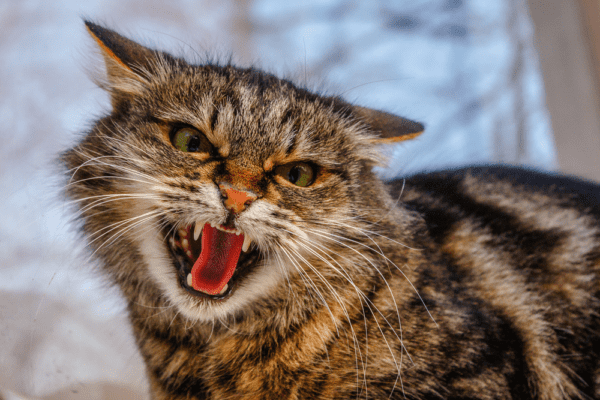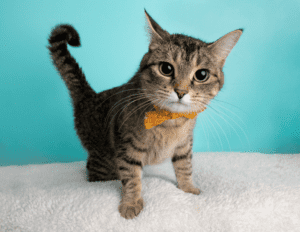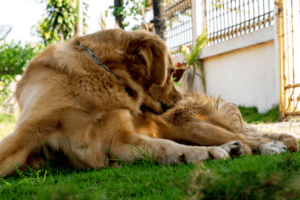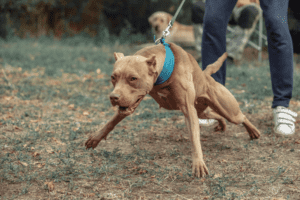It’s not uncommon for cats to hiss and growl at people, especially if they feel threatened or scared. If your cat is doing this to you, it cannot be very comforting! In this article, we will discuss 7 tips on stopping a cat from hissing and growling.
Cats are susceptible animals, and they feel like you don’t give importance or ignore them. They start showing aggressive behavior for many reasons, and the most common cause is you are not giving them enough time.
When they feel they are not getting care or you are not giving them something they want, they start to do hissing and growl at you.
Table of Contents
How do I Stop a Cat from Hissing and Growling?
Being a cat parent, you know how to handle the mood swings of your cat. If your cat is acting crazy, make sure to spend more time with her and give her proper attention. Cats do weird things to get attention, like wag their tails or hide in the corner of the house. Whatever the reason, you have to treat your feline pet like your own child.
Cats often start hissing and growling at you due to some reason. You have to discourage this behavior and teach them to remain calm in anger. Here are some tips that can help you stop your cat from hissing and growling.
1.Don’t Back Down
If your cat is hissing and growling at you, don’t back down! This will only make them more aggressive. Stand up to them and show that you’re not afraid.
2.Be Consistent
If you want to stop a cat from hissing and growling, you must be consistent. Every time they hiss or growl at you, make sure to stand your ground. Don’t encourage this behavior at any cost and try to make your cat understand that their action is wrong.
3.Use Positive Reinforcement

Whenever your cat does something good, make sure to praise them. This will help them associate positive behaviors with you. Growling and hissing are signs of aggressive behavior; make sure to look for the reason behind this behavior. Try to teach them with care and love so that your cat stops showing aggression.
4. Don’t Reward Bad Behavior
If your cat is hissing and growling, don’t give them attention. This will only reinforce their bad behavior. If you start giving attention to your cat on their bad behavior, they will try to show more stubbornness which is not suitable for the environment of your home.
5. Support your cat with pheromones
If your cat is feeling stressed or anxious, using pheromones can help to calm them down. There are many different pheromone products available, so ask your veterinarian for a recommendation. Choose the one your cat likes the best, and she will calm down after some time.

Hissing and growling can be a sign of stress or anxiety in cats, so it’s essential to identify the source of your cat’s stress. Cats can feel stress due to various reasons, such as they are feeling abandoned because you are not spending time with your cat.
They can also show signs of stress when suffering from a health issue. If you can’t figure it out on your own, consider talking to a veterinarian or animal behaviorist.
6. Time-Out
If your cat is consistently hissing and growling, you may need to give them a time-out. Please put them in a room by themselves for a short period to calm them down.
One of the main reasons behind your cat’s aggression is they don’t have a good sleep due to noise to disturbance. Give your cat a pleasant and comfortable space for themselves in which they spend their time and nap without getting disturbed.
7. Get Help
If you’ve tried all of these tips and your cat is still hissing and growling, it’s time to get help from a professional. Talk to your veterinarian or an animal behaviorist to find out how you can stop your cat’s aggression. Don’t try any treatment on your consult to the vet and get the proper medication.
Should I hiss back at my cat?
No, it would help if you did not hiss back at your cat. This will only make them more aggressive. Try to remain calm and avoid confrontation. If you need to, walk away from the situation and give your cat some time to calm down. When your cat is relaxed, approach them slowly and figure out the reason behind their behavior.
What is Your Cat Saying When He Hisses?
Have you ever wondered why your cat hisses? It’s their way of communicating with you! Here are some common reasons why cats hiss:
- They’re afraid
- They’re in pain
- They’re feeling threatened
- They want to be left alone
- They’re feeling territorial
Why do cats lick their lips after they hiss?

After a cat hisses, they often lick their lips. This is because when they make that noise, they’re releasing air from their lungs, and it’s pretty loud. By licking their lips, they’re trying to soothe the irritation that the sound may have caused.
Why do some cats do a friendly meow and hiss a few seconds later?
If a cat meows and then hisses a few seconds later, they may be trying to tell you that they’re not really in the mood to interact. They may be feeling a bit grumpy or want to be left alone.
Do all cats hiss?
No, not all cats hiss. Some breeds of cats are more prone to it than others, but ultimately it’s up to the individual cat. If your cat doesn’t typically hiss, it does probably not cause concern.
However, if your cat suddenly starts hissing more often, it could be a sign that something is wrong, and you should take them to the vet.
Read Also: Why do cats wink? Five Common Reasons for this behavior)





